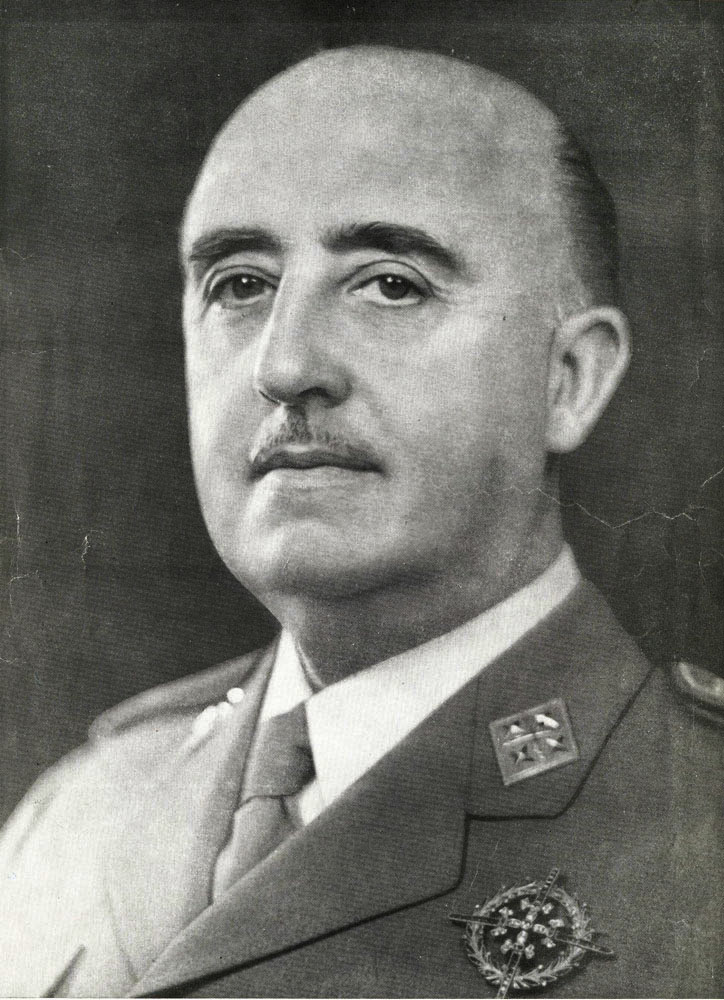Un estado totalitario armonizará en España el funcionamiento de todas las capacidades y energías del país, que dentro de la Unidad Nacional, el trabajo estimado como el más ineludible de los deberes será el único exponente de la voluntad popular.
Victory speech in Madrid (19 May 1939), quoted in Espana Nuevo Siglo (1997) by Tim Connell and Juan Kattán-Ibarra, p. 174
Famous Francisco Franco Quotes
In discussion with Niceto Alcalá-Zamora, as quoted in Francisco Franco : The Times and the Man (1938) by Joaquin Arraras, p. 159
“We do not believe in government through the voting booth.”
Statement during the civil war, cited in 1938 by TIME Magazine, http://www.time.com/time/magazine/article/0,9171,915079,00.html, also cited in John A. Crittenden, Parties and elections in the United States, Prentice-Hall, 1982, (p.6).
Context: We do not believe in government through the voting booth. The Spanish national will was never freely expressed through the ballot box. Spain has no foolish dreams.
Writing under the alias Jakin Boor in the journal Arriba in an article, "Masonry and Communism" (14 December 1946), as quoted in Franco: A Biography by Juan Pablo Fusi Aizpurúạ, p. 71
Statement in El defensor de Córdoba (24 July 1936), as cited by Javier Navarrete in Más Allá http://mcedhou1.housings.nexica.net/MAS_ALLA/html/version_texto.asp?IDArt=29
Francisco Franco Quotes
As quoted in The Tyrants : 2500 Years of Absolute Power and Corruption (2006) by Clive Foss, p. 143, ISBN 1905204965
Speech to the women’s section of the Falange in Madrid (11 September 1945), as quoted in "Freemasonry and the Spanish Civil War" http://www.freemasonrytoday.com/30/p09.php by Matthew Scanlan.
Interview with Spanish journalist Nena Belmonte, as quoted in "Freemasonry and the Spanish Civil War" https://web.archive.org/web/20080513182157/http://www.freemasonrytoday.com/30/p09.php by Matthew Scanlan.
Statement in El defensor de Córdoba (2 October 1936), as cited by Agustín Celis http://www.agustincelis.com/id64.htm
1940s, 1940, Laureate Cross acceptance speech (July 1940)
Statement during the civil war, cited in 1938 by Time magazine http://www.time.com/time/magazine/article/0,9171,915079,00.html, also cited in John A. Crittenden, Parties and elections in the United States, Prentice-Hall, 1982, (p.6).
1930s, 1938
